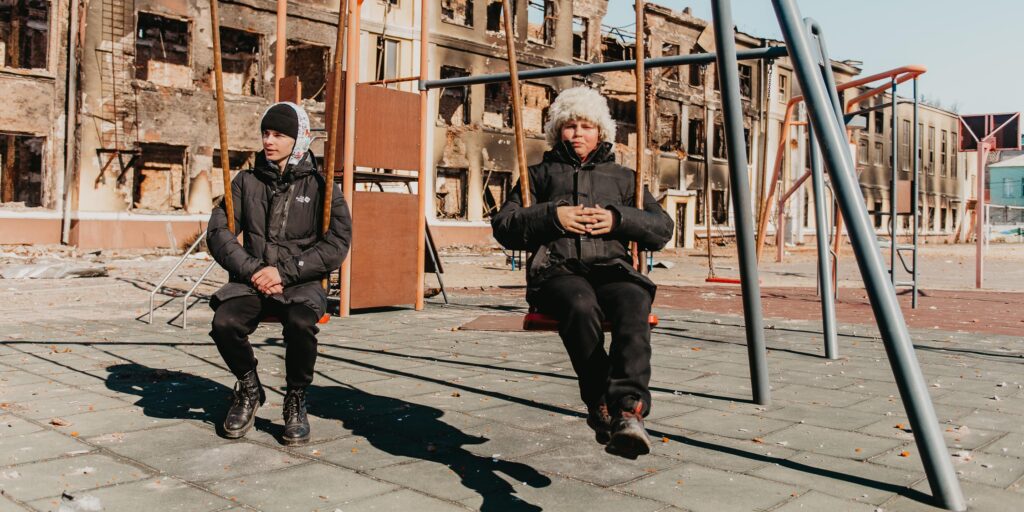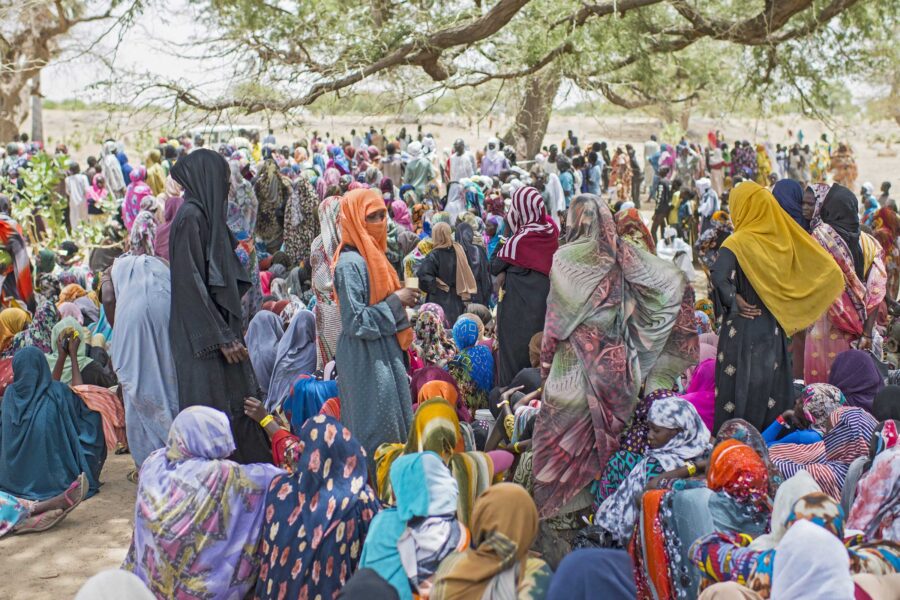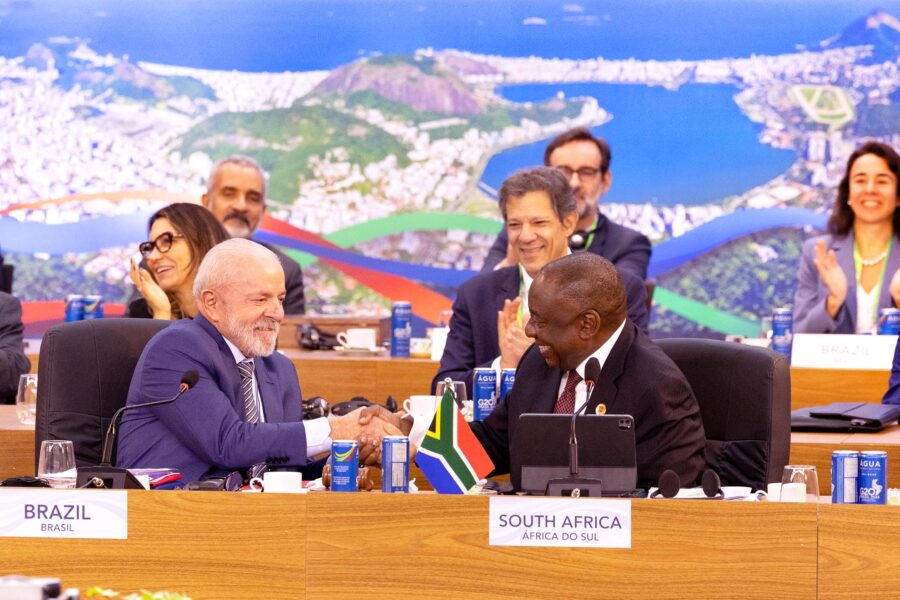Peacemaking 2.0: Conflict resolution after Russia’s war on Ukraine
If confidence was waning in post-Cold War international peacemaking mechanisms, Russia’s invasion of Ukraine has diminished it still further. While this “standard” toolkit of the last three decades still has a role to play, the grim risk of future wars means we must establish more effective multilateral mechanisms to prevent and resolve conflict
Peace and security — Global

In March, a few weeks into Russia’s attack on Ukraine, I joined an online event with experts on crisis management to discuss the conflict. Everyone agreed that this was a decisive moment in international affairs, and we talked at length about its global political and economic implications. But as we explored these issues, one basic point occurred to me.
“In the end, this is a war,” I suggested, “and like other wars, we should want it to stop.”
But for many observers of the conflict, what is happening in Ukraine is not simply another war. It is instead an attack on the post-Cold War international order, and perhaps a harbinger of greater chaos ahead. Friends of Ukraine have warned that pressing for a peace could play into Russia’s hands, pushing Kyiv to make a bad agreement rather than securing its interests.
Whatever the rights and wrongs of these arguments – and Ukraine’s allies should certainly not pressure it into peace on Russia’s terms – the war has undermined many of the foundational assumptions of those who work on conflict resolution. Peace has been a booming business in the last 30 years. International organizations such as the United Nations, governments, civil-society organizations, and academics have all invested in mediation and peacebuilding.
This conflict resolution industry started to expand in the 1990s, with a focus on the spate of civil wars in regions including the Balkans and central Africa that followed the Cold War. As Stephen John Stedman and I argued some years ago, peacemakers settled on a “standard treatment” for these conflicts, including negotiating political settlements and deploying peacekeeping forces to help make them stick. Sometimes, as in Rwanda, they failed awfully. But overall this standard treatment proved to be an effective response to the wars of the era.
Well before the Russian assault this year, UN officials and diplomats fretted that these established remedies were losing relevance to many conflicts. UN mediation has dragged on with little effect in Syria for a decade. Peacekeepers have struggled to deal with jihadist groups in Mali. Now the war in Ukraine presents more practical and conceptual challenges to conflict resolution professionals.
This is not the sort of war that we have got used to, or where the “standard treatment” for intra state conflicts is of much use. Since the 1980s, classic interstate conflicts have been exceptionally rare. But there have been exceptions, like the American-led invasion of Iraq. In the Iraqi case, as today in Ukraine, a nuclear armed veto-wielding member of the UN Security Council proved to be implacably set on fighting a war. Then as now, the council and other international conflict management mechanisms proved incapable of preventing the conflagration. We learned in 2003, and are relearning now, that we do not have an international peacemaking system equipped to deal with this type of major power aggression.
Finding a political solution to the war has not been a priority for many Western powers anyway. The US and its European allies, which frequently lecture parties to conflicts in Africa and the Middle East about the need for peace, have focused on getting military supplies to Ukraine. Even generally cautious conflict resolution organizations, such as my own employer the International Crisis Group, have supported arming Ukraine up to a point (avoiding weaponry that would require training or servicing by Western personnel inside Ukraine because of the risks of escalation) until Kyiv concludes that it is in a solid position to negotiate with Russia. The European Union, a Nobel Peace Prize winner, and its members have trumpeted their willingness to arm Ukraine and expand their own military budgets.
There have been good reasons for these actions. Moscow has not shown any interest in serious peace negotiations, and its forces have committed appalling atrocities. Even experts who generally argue for non-military responses to conflict have had to admit there is a solid case for arming Ukraine, within limits, as long as Russia refuses to engage in credible talks.
There has nonetheless been no international consensus on how to respond to Russia’s aggression. Although 141 of the UN’s 193 members voted in support of a UN General Assembly resolution condemning Russia in March, major players including China and India have abstained on most UN resolutions on the war. The US and Europeans have struggled to persuade non-Western audiences (already angry over the uneven distribution of COVID-19 vaccines) that they care about the war’s effects on food and energy prices in the Global South.
The war has created extra instability in the COVID-battered global economy, impacting the availability and distribution of Russian and Ukrainian food and commodity supplies. The US has led initiatives on how to manage rising food prices at the UN, while Germany has made this a priority for its presidency of the G7. They have tried to argue that Russia bears sole blame for the global economic crisis. But Western officials have not been able to convince their non-Western counterparts that their sanctions on Russia are not at least partially to blame. Leaders of poor countries justifiably worry that Western donors are going to redirect development assistance to Ukraine, making it even harder for policymakers elsewhere to handle economic shocks.
The war is chipping away, therefore, at the always fragile idea that all countries are bound by certain common commitments – to the UN Charter, state sovereignty, and human well-being – and highlighting global rifts and mistrust. Yet, ironically, a further challenge relating to the implications of events in Ukraine for conflict resolution specialists is precisely that this is a global crisis. Global economic instability could fuel social unrest and political crises in weak states far away from Eastern Europe. We could be on the verge of a period of expanding international instability just as we see that our tools for handling this instability are weak.
What should conflict resolution specialists do in these circumstances? Some modesty is required. Even before Ukraine, we were failing to have much impact on conflicts in places such as Ethiopia and Myanmar. As I argued in a paper for the Council on Foreign Relations last December, the best that the UN and other international agencies may be able to achieve in many of today’s wars is to facilitate humanitarian efforts to mitigate and contain suffering. In the case of Ukraine, the UN has proved able to play a humanitarian role, with Secretary-General António Guterres securing the evacuation of Ukrainians under siege by Russian forces in the Azovstal steel works in Mariupol in April. Such steps fall far short of conflict resolution, but conflict mitigation is still a valuable political and moral task when nothing else is possible.
It is also time to sound the alarm on the risk of a cascade of instability globally linked to the economic shocks from the Ukrainian war. Experts who focus on conflict resolution need to ally with economists, trade experts, and specialists in food and energy to understand better the dangers of these shocks, and look for ways to minimize political disruptions.
Finally, it is still too early to give up on the lessons and ideas of post-Cold War conflict resolution, even if these do not seem germane to Ukraine. There are many small and medium-sized intra-state wars – with over half these conflicts in Africa – where mediation, peacekeeping, and other “standard” tools might still do some good. Western experts will need to approach these cases with humility. Russia’s war on Ukraine has demonstrated the flaws in our work. But even if this war has been an exceptional challenge to those committed to conflict resolution, there are other wars to address, and we should want them to stop too.





